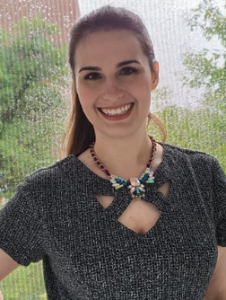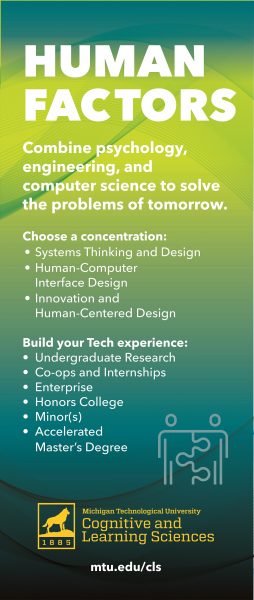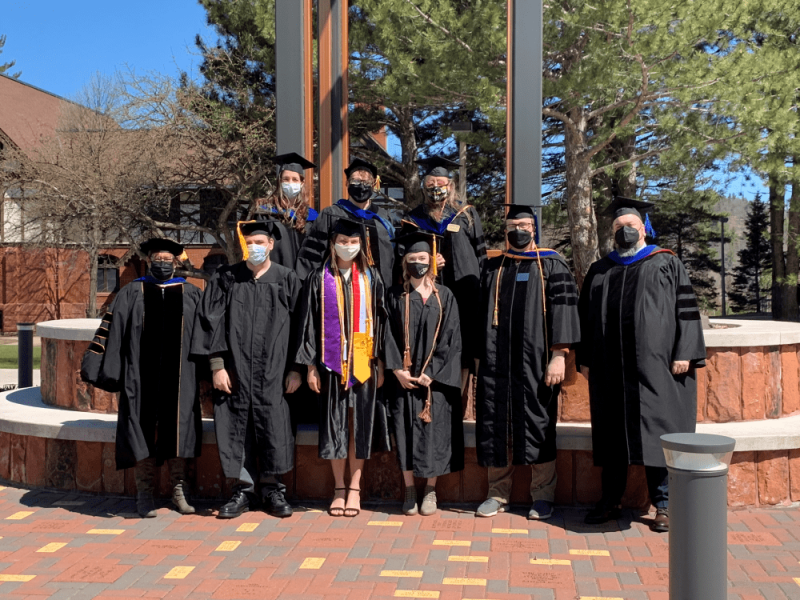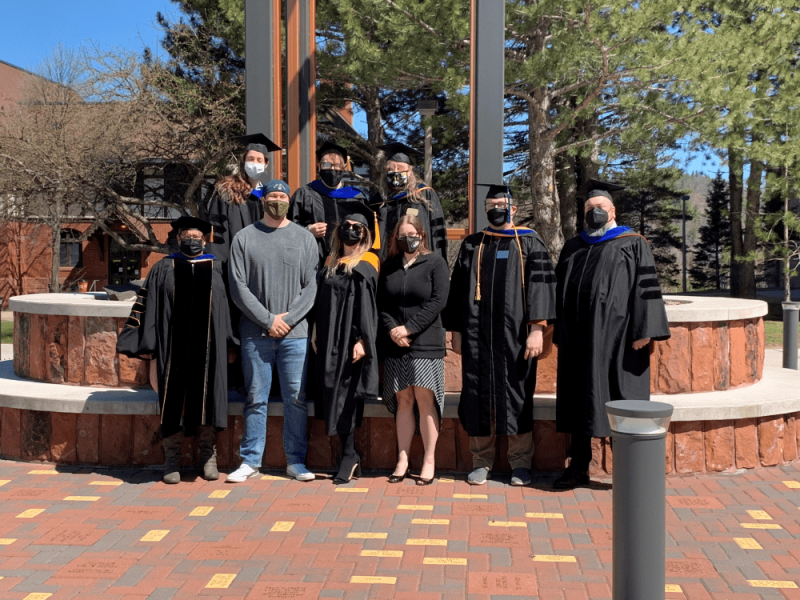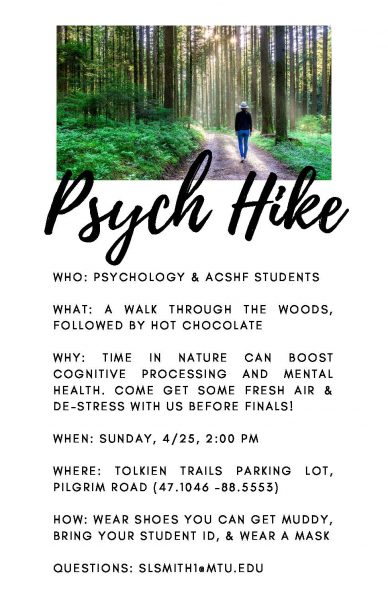
The pandemic’s impacts on our campus research ecosystem are many and varied. In his guest blog, Kevin Trewartha shares how the halt in face-to-face interactions compelled his team to find alternatives with applications far beyond current challenges.
In the Aging, Cognition, and Action Lab, we investigate the relationship between age-related changes in cognitive and motor function and the neurophysiological basis for those changes. Like so many others who study human behavior and physiology, our research relies on volunteers to perform tasks in the laboratory while we record their performance.
The pandemic caused a sudden and unexpected end to all face-to-face data collection, and an astounding pause in the research methods I have relied on for almost two decades. Yet, as is often opined, great challenges bring great opportunities.
Challenge: Face-to-Face Data Collection Paused
Our understanding of human cognitive, motor, social, and physiological function is dependent on our ability to gather data from participants who volunteer their time in the spirit of scientific inquiry. For many scholars, collecting data means bringing participants into the laboratory to perform a variety of tasks in close contact with the experimenters.
In my lab, we study age-related changes in neurophysiological, cognitive, and motor function by testing individuals 65 and older. Collecting data with human participants means working closely with the Institutional Review Board (IRB) to ensure that our protocols do not present any significant physical or psychological risk to our participants. As researchers, we have a moral and ethical responsibility to ensure their safety. Any risks to the participant must be minimized and reasonable in relation to the expected benefits and importance of the knowledge to be obtained by the research.
The COVID-19 pandemic suddenly elevated the risk of recruiting participants for face-to-face data collection. Prior to widespread availability of a vaccine, the risk of developing serious illness after contracting the virus meant that it was no longer safe to bring participants into the lab. Data collection initiatives like ours were suspended in labs all over the world as we learned more about the virus.
As the weeks passed, a clear picture emerged about the relative risk of severe illness and death due to COVID-19. Older individuals and those with underlying medical conditions were at disproportionate risk for adverse outcomes. With careful planning and review, the IRB worked closely with researchers to mitigate the risks involved and allow human subjects research to eventually resume. However, work with individuals over 65 years old was deemed too risky for the participant.
On a personal level, too, I was unwilling to run the risk of a participant getting severely sick or dying just because they chose to volunteer for research in my lab. Although we expected the shutdown to be temporary, it ended up being more than 15 months before we could prepare to resume data collection with our most vulnerable participant populations.
One of our current National Institutes of Health-funded research projects involves working with older adults with mild cognitive impairment (MCI) or early stages of Alzheimer’s disease. We are investigating whether subtle changes in motor learning behavior could be a sign of early cognitive impairment. The very same week in March 2020 that Michigan Tech and the State of Michigan recognized the need to change our day-to-day operations, we were collecting data with this high-risk population. Immediately, we recognized the need to pause our data collection — an incredibly frustrating albeit necessary decision, given that we were about halfway through our three-year project at the time.
Having to halt most progress on our funded project for almost as much time as we had been working on it provided an opportunity to refocus on one of the biggest challenges we face in behavioral and physiology labs: How do we collect data from human participants if we cannot meet with them face-to-face?
In fact, this was a problem we recognized. There were already well-known, existing disparities between the types of individuals who participate in research and those who do not. Much of the human performance literature is based on data collected from more urban centers, from people who have the physical and financial means to travel to our labs. Fewer studies tend to recruit rural populations, especially those living in more isolated communities and those who have physical and financial barriers to traveling. We once wrote a grant that included a request for funds to develop and test a mobile (tablet-based) platform for motor learning and cognitive testing. Unfortunately, it was not funded, and the idea was set aside.
Solution: Initiate Remote Data Collection
Although the pandemic levied a devastating blow to our research program, it also provided an important opportunity for us to revisit the mobile testing idea and develop a method to collect data remotely. The development of such technology was beyond my expertise, so we reached out to a colleague in the College of Computing: Robert Pastel, who agreed to collaborate with us on this new project.
At the time, travel was ill advised, so we had some time to work through the development of a web-based app for administering the same motor learning experiments we typically run on our sophisticated equipment in the lab. One of my graduate students was then able to shift the focus of her master’s thesis to testing the validity of this new app with healthy younger and older adults by administering the experiment remotely over Zoom.
There were several added challenges to shifting this focus that we did not anticipate at the time. We grow comfortable with our standard methodologies, and shifting to something completely different takes time. Anticipating hiccups along the way is difficult when you enter personally uncharted waters.
The pandemic imposed great challenges outside of work as well. Sudden losses of child care; sharing remote workspaces with family or roommates; trying to help care for family members who live elsewhere; figuring out how to stay physically active; and managing stress, isolation, fear and ever-shifting public health guidance were struggles we all shared. Trying to manage those challenges while trying to launch a new line of research was daunting, especially while working to stay as productive as we could with our existing projects. Despite all those challenges, we made steady progress and expect to finish our initial remote data collection project during the fall 2021 semester.
We are excited about this new line of research and fully expect to continue exploring remote data collection after the pandemic is over. This new approach is a silver lining to a year fraught with barriers to our research productivity. We also consider ourselves fortunate that it was feasible to shift some of our work to an online platform. Many methods of measuring human behavior and physiology, including some of our own, are simply not possible through remote data collection, at least with existing technology. But as is the case with many aspects of our daily lives, the pandemic taught us to adapt, think outside the box and be resilient.
Additional challenges will arise, even as the spread of SARS-CoV-2 wanes. For human subjects research, it will take time to ramp up data collection initiatives to normal levels. Testing sessions may also be slowed down by the need to practice careful mitigation strategies to further limit the risk of spreading the virus. It also remains unclear what lingering impact the pandemic may have on participant recruitment. Some individuals may be more hesitant to volunteer, especially high-risk populations. Regardless, I am so proud of my students, colleagues, collaborators and clinical consultants for their agility, patience and hard work this past year, and I am confident we will meet any new challenges that arise.
The new directions in our lab’s research program this past year are a testament to the importance of interdisciplinary and multidisciplinary collaborations. Without the expertise and efforts of Pastel, our new line of remote testing research wouldn’t have happened. Our interactions during the development process also taught me a lot about considerations programmers need to make when developing apps like this. Collaborations of this sort really start with an informal conversation among colleagues. We have plenty of work to do in this area in the future, but I am excited for a new and somewhat unexpected direction for my research program.
The resilience and adaptability of human subjects researchers will continue to be put to the test for the foreseeable future. This pandemic is not over. We all look forward to a day when we can resume “normal” life again. That day can happen soon, but it requires that we acknowledge the pandemic for what it is — a worldwide public health crisis that does not care about our politics.
Thanks to scientists who have dedicated their lives to developing health technologies, we have access to several safe and effective vaccines that not only prevent people from getting sick and dying, but will prevent the virus from mutating to a point that it evades our immune system defenses and puts us back to square one. When it comes to vaccination, we need to ignore the media, social media, armchair “researchers” and politicians in favor of seeking advice from our trusted medical professionals. As we collectively band together to end this pandemic, we are coming out the other side with new innovations that will make society better.
About the Author
Kevin Trewartha
kmtrewar@mtu.edu
906-487-3206
Research Interests
- Cognitive Aging
- Cognitive Neuroscience
- Motor Learning
- Sensorimotor Control
- Memory
- Cognitive Control
Michigan Technological University is a public research university founded in 1885 in Houghton, Michigan, and is home to more than 7,000 students from 55 countries around the world. Consistently ranked among the best universities in the country for return on investment, the University offers more than 125 undergraduate and graduate degree programs in science and technology, engineering, computing, forestry, business and economics, health professions, humanities, mathematics, social sciences, and the arts. The rural campus is situated just miles from Lake Superior in Michigan’s Upper Peninsula, offering year-round opportunities for outdoor adventure.

